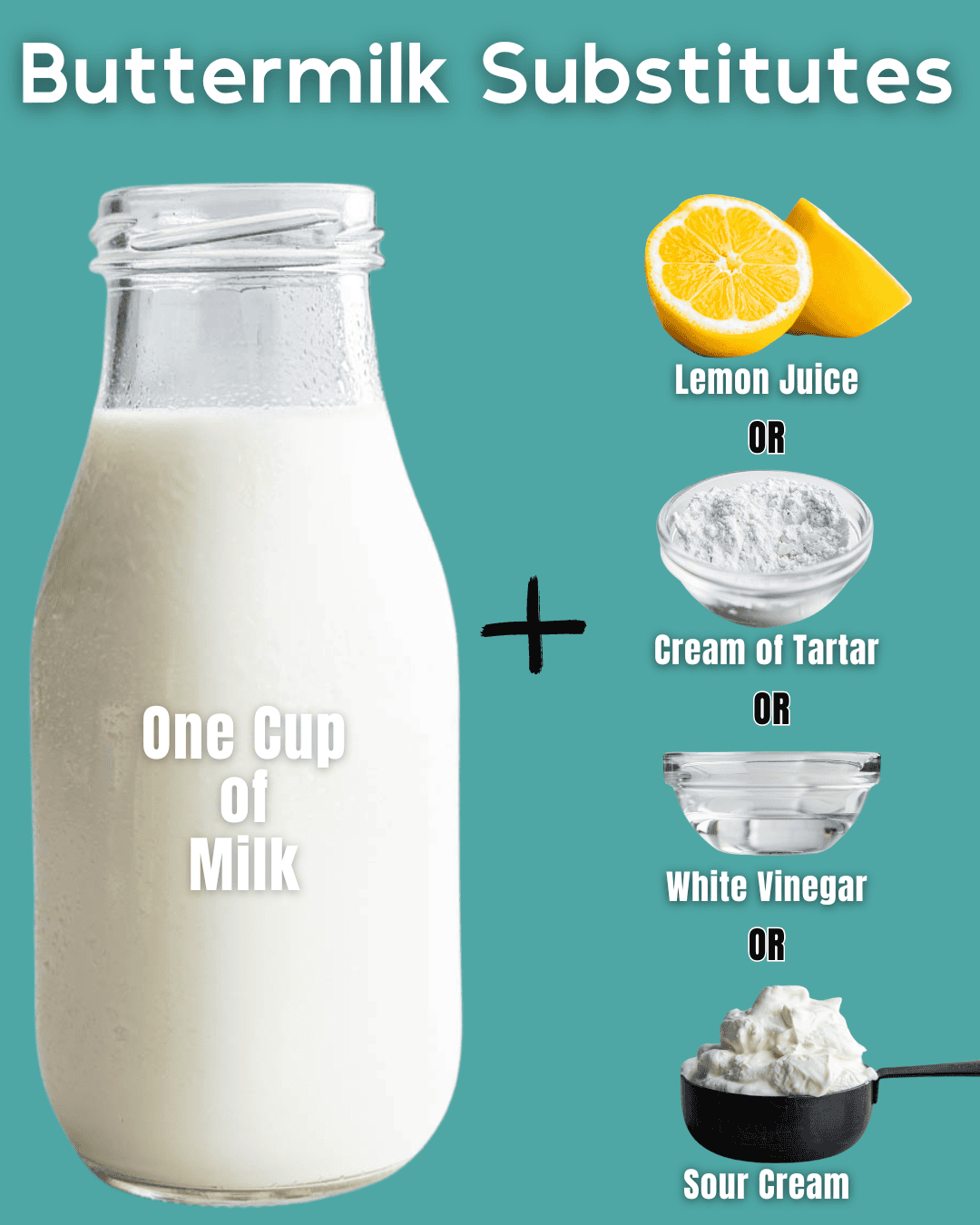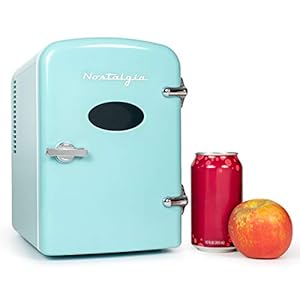Never run out of buttermilk again! Learn how to replicate the creamy, tangy qualities of buttermilk for your favorite recipes, without having to buy a whole carton or run to the store yet again. Whether you’re making fluffy pancakes, moist cakes, tender marinated meats, or even a homemade ranch dressing, these substitutes will come in handy if you find yourself without buttermilk. This guide offers simple solutions, including dairy-free options.
Why Our Guide
- Straightforward guide to quick substitutes plus when each one works best.
- Diary-free options for use with almond milk, oat milk, and other milk alternatives.
- Visual reference and printable guide to keep on hand in your kitchen.
What You Need to Know About Buttermilk
Traditionally, buttermilk is the liquid leftover after churning butter. What is sold in most grocery stores is cultured buttermilk, which is made by adding lactic acid bacteria to regular milk. Buttermilk has a sour taste and can be drunk straight or used in cooking and baking.
Buttermilk is usually sold in small cartons or bottles. Find it in the refrigerated section of your grocery store, near other milk products like sour cream and heavy cream.
Powdered buttermilk, or buttermilk powder, is a shelf-stable powder that makes liquid buttermilk when combined with water or milk. The general ratio used is 1 part buttermilk powder to 1 part liquid.
Can I just use milk instead?
Buttermilk reacts with rising agents, like baking soda and baking powder, to form carbon dioxide and act as a leavening agent. If you have a recipe that calls for both buttermilk and a rising agent, you shouldn’t substitute regular milk. Either purchase a carton or make your own substitution for buttermilk at home.
The 3 Main Buttermilk Substitutes
Each substitute listed can be easily prepared with common kitchen ingredients. Below, you’ll find the substitutes categorized by their best uses in cooking and baking:
1. Milk + Lemon Juice or Vinegar
- Best for: All-purpose use in breads, pastries, cakes, and other baked goods.
- Avoid in: Recipes that require a thicker consistency or richer texture like marinades or dressings.
- Instructions: Add 1 tablespoon of lemon juice or white vinegar to 1 cup of milk. Stir and let it sit for about 5 minutes until slightly thickened.
2. Milk + Cream of Tartar
- Best for: Recipes requiring a subtle tang and a fine crumb like muffins, cakes, quickbreads, or scones.
- Avoid in: Marinades or dishes where a stronger acidic profile is needed, as its effect is milder compared to vinegar or lemon juice.
- Instructions: Mix 1 3/4 teaspoons of cream of tartar with 1 cup of milk. Stir and let it sit until it starts to curdle.
3. Milk + Sour Cream or Plain Greek Yogurt
- Best for: Rich, dense baked goods and dishes where moisture and fat are beneficial. This substitute is excellent for chocolate cake, luxurious pancakes, and creamy dressings where a thick, rich texture is deal.
- Avoid in: Light, fluffy recipes where the heavy nature of sour cream or yogurt might weigh down the final product, such as angel food cake.
- Instructions: Combine 3/4 cup sour cream or yogurt with 1/4 cup milk. Whisk until smooth.

Dairy-Free Options
For those avoiding dairy, you can use the first three combinations with non-dairy milk like oat, soy, or almond milk. Oat and soy milk are preferred for their texture and flavor compatibility with traditional dairy milk. However, almond milk might result in a thinner consistency. Other varieties will also work in a pinch, but sometimes coconut milk and rice milk have a hard time curdling or thickening just right.
Storage Instructions
It’s so quick and easy to make homemade buttermilk substitutes, so we suggest mixing just what you need as you need it. If you happen to use this ingredient frequently, you can store larger batches.
Refrigeration: Mix only what you need but if necessary, store in the fridge for up to 1 week in a sealed jar or container. Shake well before use.
Freezing: Pour the substitute into a freezer-safe container, leaving some space at the top. For smaller portions, freeze in an ice cube tray and then transfer to a sealed container. The USDA says that buttermilk can be frozen for up to 3 months. Thaw in the refrigerator overnight when ready to use.
Trending Products















